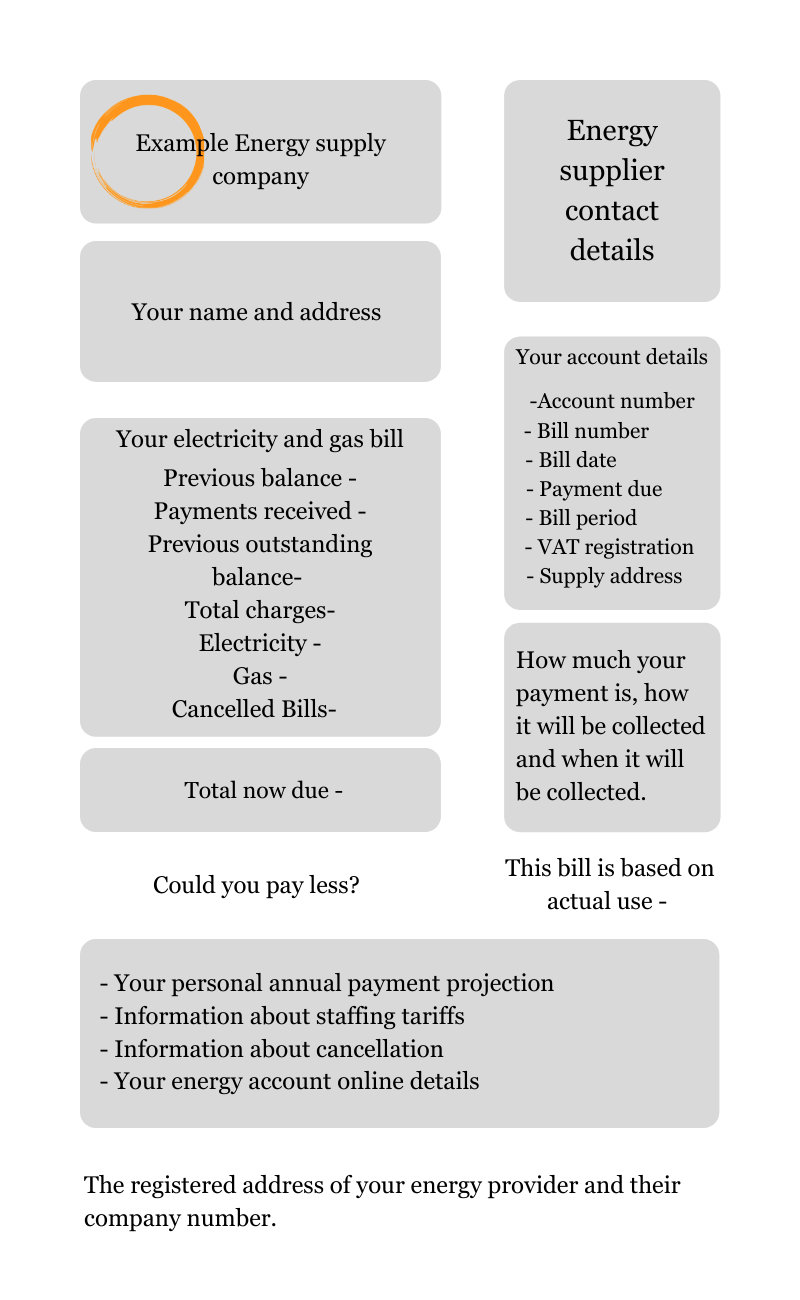Energy Bills: Helping your customers understand their energy bills
A new study has revealed that energy bills are the most difficult to understand out of seven different types of household bills. We break down a typical energy bill.
Most confusing bills
Helping your customers understand their energy bills
An energy supplier should help its customers understand their energy bills.
Billing is the biggest cause for complaints from consumers with many of the complaints being a result of a lack of understanding of how they work. We take a look at a typical energy bill.
A typical Energy Bill
The first page of an energy bill contains a wealth of information that include the customer's details, the billing information and an overview of the charges accrued.
An energy bill is typically broken down into various sections that include -
Account number
An energy bill will always show the customer's account number. This acts similarly to a bank account number in that it is a unique identifier for that specific account. This allows energy suppliers to quickly access the customers billing account and allows a customer to manage the account online or when they require assistance from the supplier over the phone.
Bill number
The billing number is the unique identifier for that specific energy bill. It allows a supplier to quickly find it in case the consumer has a query or complaint. Most energy suppliers now use CRM systems to easily manage the billing and customer care side of things.
Bill date
The bill date is the date the bill was created and made available either online or in printed form. This date is often the same month.
Knowing the bill date an energy supplier should inform their customer to take a meter reading (if they’re not using a smart meter) and submit it. By doing this the chances of billing errors will be reduced, and it places the responsibility for ensuring the bill is accurate and not based on predictions in the hands of the customer.
Payment due
This is the date when payment is due. The energy bill will also show how a consumer pays their bills such as via Direct Debit, standing order, etc.
Bill period
This specifies the date range a customer is being charged for on the bill, and when their meter readings were taken.
An energy supplier should inform their customers that this information is important if they’re moving residence as this will dictate the accuracy of their energy bill from their old residence to their new one.
VAT registration number
Domestic customers are charged the VAT rate of 5% on their energy use. This information is more relevant to businesses or to those seeking to apply for a reduced energy rate for a business.
Reducing Energy Bill errors
Dyball Associates energy billing software and CRM system reduce the chances of energy billing errors as it provides a series of functions that minimise the need for manual interaction and delivers a seamless customer experience.
The benefits of using our CRM include:
- Bespoke bill design
- Automated bill production
- Email, PDF, electronic or fulfilment house bill generation integration
- Increase billing accuracy and reduce energy bill related complaints
- Manage energy bill warning and validation issues
- View unbilled and manage revenue protection
- Reduce account administration
- Allows the integration with a chosen Direct Debit partner
- Flexible and scalable to your business needs
Further Reading
Get Connected with Dyball Associates DCC Adapter
OVO Energy pays out £1.2 million to Ofgem for smart meter installation failures
How a CRM makes Energy Billing easy for Energy Suppliers
Dyball Associates are proud to help new supply businesses successfully launch in the UK market.
Between our energy market consultancy services and the software we’ve developed, we’re supporting new UK electricity and gas suppliers to get set up and start supplying.
Follow us on Twitter and LinkedIn to keep up to date with the latest news and updates in the energy industry.





